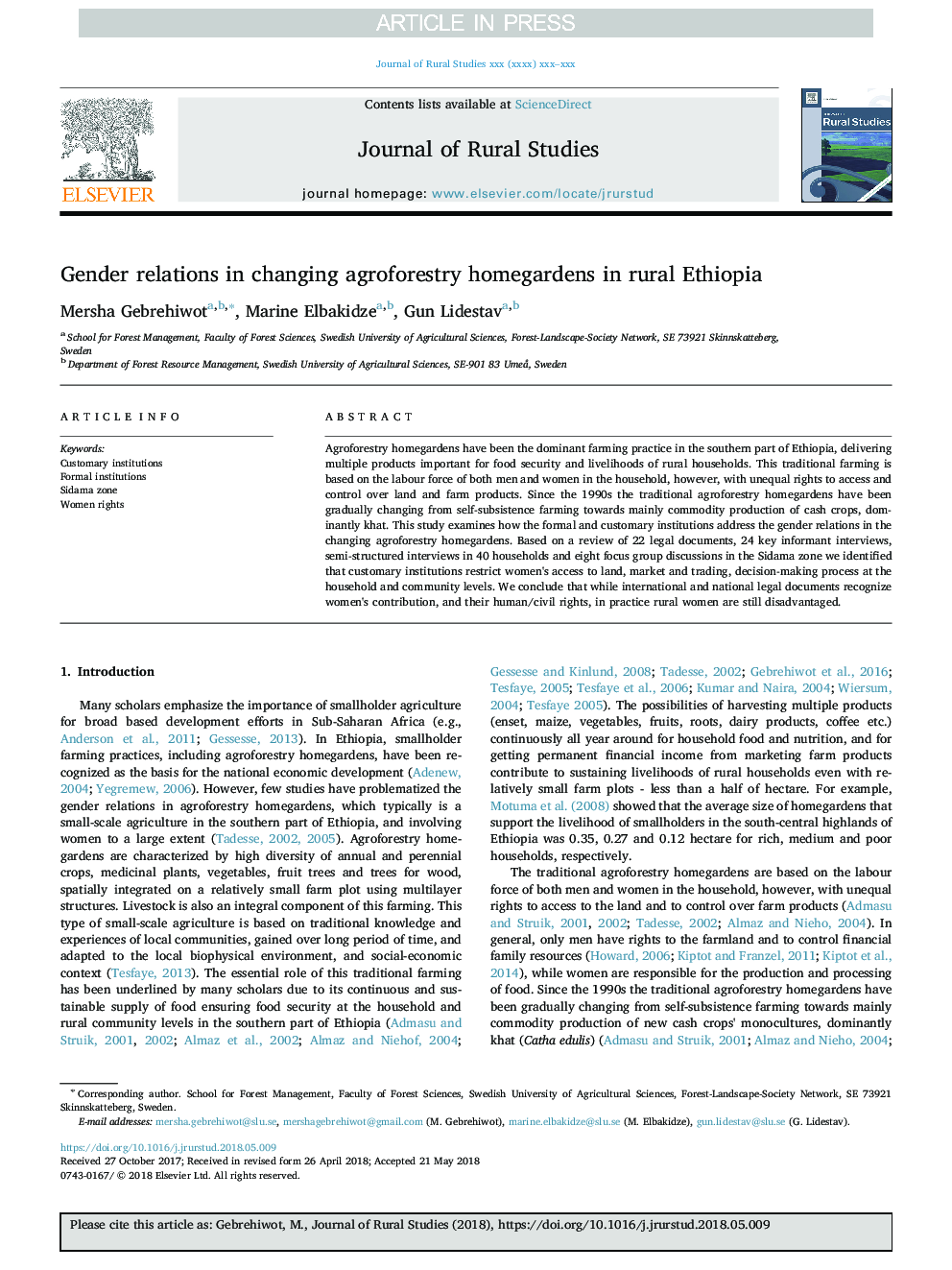| Article ID | Journal | Published Year | Pages | File Type |
|---|---|---|---|---|
| 6545249 | Journal of Rural Studies | 2018 | 9 Pages |
Abstract
Agroforestry homegardens have been the dominant farming practice in the southern part of Ethiopia, delivering multiple products important for food security and livelihoods of rural households. This traditional farming is based on the labour force of both men and women in the household, however, with unequal rights to access and control over land and farm products. Since the 1990s the traditional agroforestry homegardens have been gradually changing from self-subsistence farming towards mainly commodity production of cash crops, dominantly khat. This study examines how the formal and customary institutions address the gender relations in the changing agroforestry homegardens. Based on a review of 22 legal documents, 24 key informant interviews, semi-structured interviews in 40 households and eight focus group discussions in the Sidama zone we identified that customary institutions restrict women's access to land, market and trading, decision-making process at the household and community levels. We conclude that while international and national legal documents recognize women's contribution, and their human/civil rights, in practice rural women are still disadvantaged.
Keywords
Related Topics
Life Sciences
Agricultural and Biological Sciences
Forestry
Authors
Mersha Gebrehiwot, Marine Elbakidze, Gun Lidestav,
